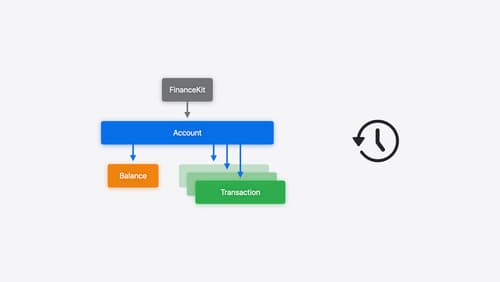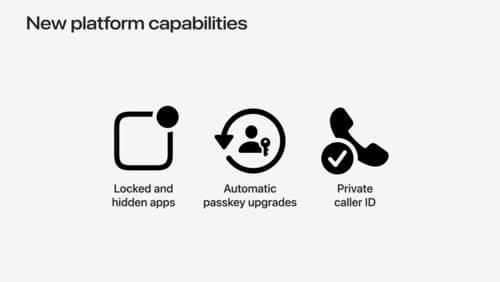Identifiable
Asked on 2024-08-06
1 search
Identifiable Information in WWDC 2024 Sessions
Several sessions at WWDC 2024 discussed the use of unique identifiers in various contexts. Here are some key points:
-
MapKit:
- Place ID: Introduced as a unique identifier for places, which can be used to reference places represented by map items in the MapKit framework and by place in MapKit JS. These identifiers are unique and remain valid over time, making them useful for persisting and sharing data.
- Unlock the power of places with MapKit (00:00:56)
-
TipKit:
- Custom Identifiers: Allows tips to be reused based on their content. Custom identifiers can be based on concrete elements like user IDs or trail names, enabling TipKit to make tips eligible based on events across multiple app launches.
- Customize feature discovery with TipKit (00:05:12)
-
Core Spotlight:
- Unique Identifiers: When creating a CS searchable item, a unique identifier should be stored in your app's persistent storage solution to recover the full item data.
- Support semantic search with Core Spotlight (00:02:13)
-
FinanceKit:
- Account Identifiers: Each account has a local unique identifier, which is also present in every transaction and balance, making it easy to associate these objects with their containing account.
- Meet FinanceKit (00:01:48)
-
App Intents:
- Uniform Type Identifiers: Used to label files or data with a type, making entities meaningful to the device and allowing for standardized data sharing.
- What’s new in App Intents (00:05:00)
-
SwiftData:
- Unique Macro: A new schema macro that allows you to construct a compound constraint on persistent models, ensuring that combinations of model properties remain unique.
- What’s new in SwiftData (00:02:43)
-
AdAttributionKit:
- Marketplace Identifier: Carries the identifier of the marketplace where the conversion occurred, such as the Apple App Store.
- Meet AdAttributionKit (00:08:34)
These sessions highlight the importance of unique identifiers in various frameworks and tools, ensuring data integrity, reusability, and meaningful integration across different components of an app.

Customize feature discovery with TipKit
Focused on feature discovery, the TipKit framework makes it easy to display tips in your app. Now you can group tips so features are discovered in the ideal order, make tips reusable with custom tip identifiers, match the look and feel to your app, and sync tips using CloudKit. Learn how you can use the latest advances in TipKit to help people discover everything your app has to offer.

Meet FinanceKit
Learn how FinanceKit lets your financial management apps seamlessly and securely share on-device data from Apple Cash, Apple Card, and more, with user consent and control. Find out how to request one-time and ongoing access to accounts, transactions, and balances — and how to build great experiences for iOS and iPadOS.

What’s new in privacy
At Apple, we believe privacy is a fundamental human right. Learn about new and improved permission flows and other features that manage data in a privacy-preserving way, so that you can focus on creating great app experiences.
